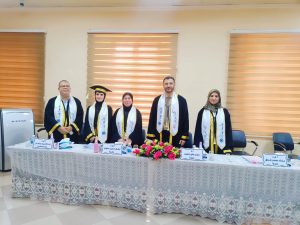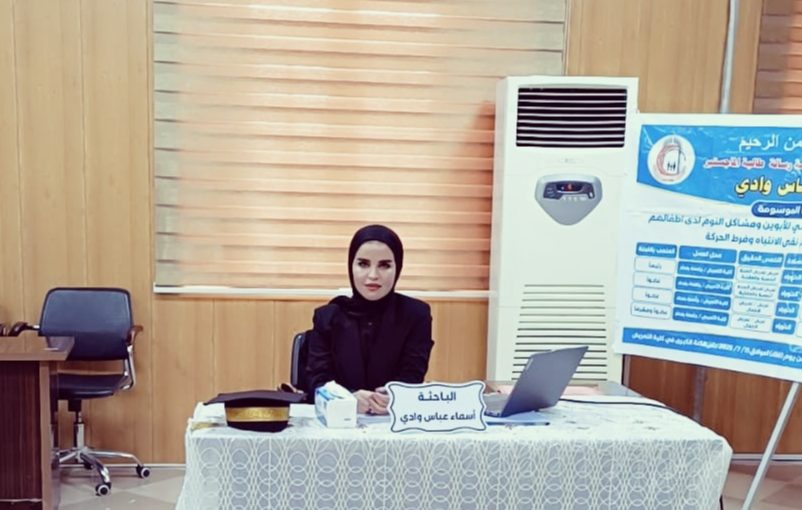The College of Nursing at the University of Baghdad discussed a master’s thesis entitled “The Relationship Between Parents’ Psychological Stress Levels and Sleep Problems in Their Children with Attention Deficit Hyperactivity Disorder,” submitted by student Asma Abbas Wadi, under the supervision of Assistant Professor Dr. Zaid Wahid Ajel in the faculty’s skills hall.
The thesis aimed at four main themes, including assessing the prevalence of sleep problems in children diagnosed with attention deficit hyperactivity disorder, determining the levels of parental stress associated with these sleep problems, the severity of sleep problems and levels of parental stress, and the relationship between parental stress and socio-demographic factors.
The results showed that sleep problems are common among children with ADHD, especially resistance to bedtime and sleep duration, at moderate levels. It was also found that most of the parents concerned suffered from stress, with high levels of parental distress. The study found a positive and statistically significant relationship between children’s sleep disorders and their parents’ stress levels. In addition, the results revealed that social and demographic factors such as low income, level of education, and marital status also contribute to increased parental stress, reflecting broader socioeconomic effects.
One of the most important recommendations of the study is the need for educational programs for parents on sleep problems related to ADHD and ways to treat them, as well as counseling to reduce their psychological stress. The researcher received an excellent grade for her thesis.
This study directly contributes to the achievement of the third Sustainable Development Goal, Good Health and Well-being, by highlighting the relationship between parental stress and sleep problems in children with ADHD. The study provides vital insights for the development of psychological and social support interventions for families. Addressing parental stress and improving children’s sleep contributes to enhancing the mental and physical health of both children and their families, leading to an improved quality of life for the entire family. Recommendations to provide educational and counseling programs support the provision of comprehensive and accessible mental health services, which is consistent with efforts to build healthier and more resilient communities committed to the principle of leaving no one behind in the development process.










